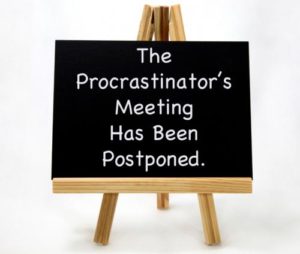Make Meetings Matter
For a 1:1 meeting to be effective, both parties must be 100% engaged. When you’re not paying full attention, your facial expressions and other nonverbal and verbal communications give you away, sending the message that the other person simply isn’t important. If you’re preoccupied or distracted, don’t try and “fake” your way through an important meeting. Pick the right meeting time and place, and then give the other person your undivided attention. This simple discipline will result not only in solid engagement, but also greater mutual respect and productivity.
People lead bad meetings all the time, and I’ve occasionally been guilty of it, too! But I’ve also learned a few foolproof tips from former bosses who managed meetings effectively. Here are some suggestions to consider:
Create the place, space and time for holding a great meeting. One boss I had was often hard to pin down for a meeting, but once you did meet, he was all yours. First, he’d purposefully schedule or agree to a set time and date — and be ready for the meeting mentally. Second, he had a little table apart from his desk, where we’d sit together away from all other desk clutter and distractions — and no interruptions (phone calls, walk-ins, etc.) were allowed. Third, he’d take the lead, asking questions or quickly prompting you to talk comfortably about the issue on the table. If you can’t set up a separate table in your office for a meeting space, consider stepping outside to a conference room, moving your chair around to the other side of your desk to sit closer to the person with whom you’re meeting, or, at a minimum, clear off the desk and shut off all distracting devices — silence ring tones and “sleep” your computer. Then listen, don’t talk all the time, and be open to what the person before you is saying.
Conduct the meeting with goals in mind. Productive, meaningful and effective meetings have a purpose or goal. Pre-determine what this goal is, communicate it with the other person, and then stick to a meeting plan/agenda that facilitates accomplishing this goal. Write down the goal, along with the steps you’ll use to achieve it, and then share it with the other person as well. Having that written in black and white helps everyone stay on task. Then after the meeting, get feedback on how it went. Any lessons learned will shed light on what worked or didn’t, as well any corrective action you might need to take.
Know when to cancel. Great leaders recognize their limitations, and if they’re not prepared for a meeting or commit 100%, they don’t fake their way through it. If you’re struggling with this challenge, have the courage to reschedule the meeting when you’re truly ready. It will save everyone precious time, energy and angst.
What do you do to make your meetings successful?



